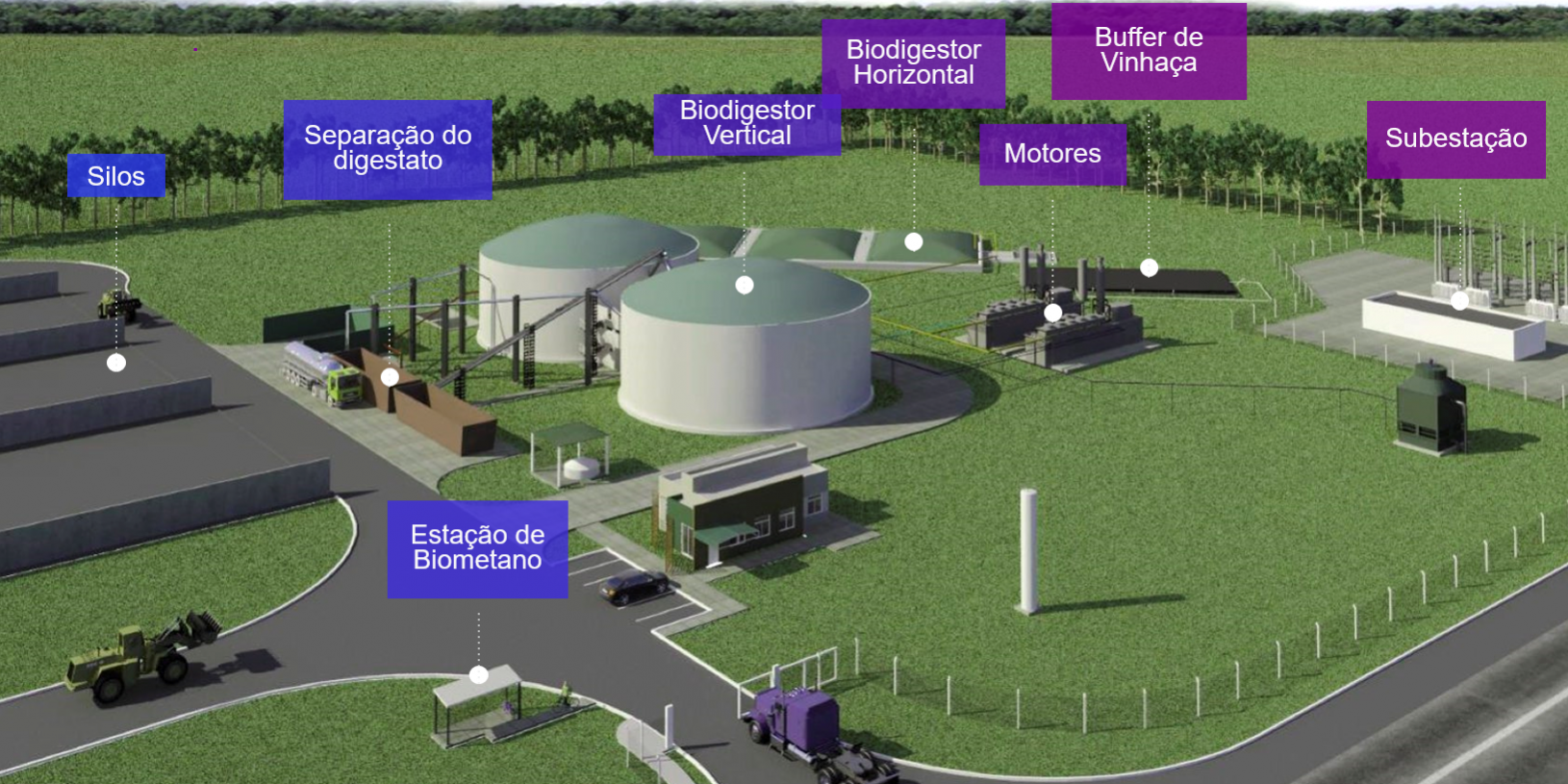The National Bank for Economic and Social Development (BNDES) approved financing of R$ 80 million for UISA Geo Biogás S/A to build an industrial unit for the production of biomethane and electricity from sugarcane residues, in Nova Olympia (Mato Grosso). Created in 2019, UISA Geo Biogás is a joint venture between the company Usinas Itamarati S.A. (UISA), which has a 49% stake in the business, and Geo Biogás & Tech, which has a 51% stake.
In the first phase, the plant will produce up to 11.4 million Nm³/year of biogas. The project will allow the distribution of biomethane in a region that does not yet have a natural gas network. The biomethane will also be used to replace diesel in part of UISA’s truck fleet.
The commitment will also contribute to the reduction of greenhouse gas emissions. According to a tool prepared by the BNDES in collaboration with the Getúlio Vargas Foundation, the total volume of carbon captured will be 9.1 million tons, which is equivalent to planting 63 million trees. The financing was approved under the BNDES Climate Fund program and corresponds to 33% of the total investment planned for the project, R$ 243.5 million.
According to Bruno Aranha, interim president of BNDES, the Bank has sought to promote the diversification of renewable sources in Brazil’s electricity and fuel matrix. “In this sense, biogas plays a doubly important role, since in addition to contributing to electricity generation, it also makes it possible to replace fossil diesel with biomethane, helping to reduce carbon emissions and imports from the fuel sector,” he indicated.
“The UISA Geo Biogás project is in line with the purpose of transforming organic, solid and liquid waste from agro-industry into a renewable source of raw material for the production of biogas, biofertilizers, biofuels and electricity generation at scale. Biogas is a solid and scalable source alternative to decarbonize sectors such as heavy transport, industry and LPG and fuel oil consumers,” said Alessandro Gardemann, CEO of Geo Biogas & Tech.
The unit is being built next to the UISA sugar and alcohol plant, which will allocate its industrial waste to the production process of the new facility. Biogas production, according to the project, can be carried out independently of the sugarcane harvest and out of season. This is because the technology used will be anaerobic biodigestion, capable of processing waste that can be stored without loss of organic matter, allowing the plant to constantly supply gas throughout the year.
During the construction of the unit, 300 direct and indirect jobs will be generated. With the entry into operation, scheduled for December 2024, the project will be responsible for generating 80 new jobs.
Source: BNDES







